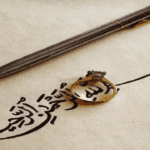In the bustling tapestry of life, where transitions and changes are inevitable, finding solace in spiritual practices becomes crucial. Among the many prayers in Islam, “inteqal ki dua” holds a special place, guiding individuals through moments of change and uncertainty.
Contents
- 1 inna lillahi wa inna ilayhi raji’un text | Arabic, English and Hindi
- 2 Understanding “Inteqal Ki Dua”
- 3 The Power of Supplication
- 4 How to Perform Inteqal Ki Dua
- 5 Common Misconceptions
- 6 Stories of Impact
- 7 The Science of Prayer
- 8 Inteqal Ki Dua in Daily Life
- 9 Variations of Inteqal Ki Dua
- 10 Addressing Cultural Sensitivities
- 11 Common Challenges in Practicing “Inteqal Ki Dua”
- 12 Incorporating Dua into Family Rituals
- 13 Impact on Mental Health
- 14 Conclusion
- 15 Frequently Asked Questions
inna lillahi wa inna ilayhi raji’un text | Arabic, English and Hindi
إِنَّا لِلَّٰهِ وَإِنَّا إِلَيْهِ رَاجِعُون
INNA LILLAHI WA INNA ILAYHI RAJIOON
Inteqal Ki Dua in english
We belong to Allah and to Him we shall return,)
Inteqal ki dua in hindi:
हम अल्लाह के हैं और उसी की ओर लौटेंगे)
Understanding “Inteqal Ki Dua”

Definition and Meaning
“Inteqal ki dua” translates to the prayer for transition. It is a supplication seeking divine guidance and strength during significant life changes. In the rich tapestry of Islamic traditions, this prayer has deep historical roots, offering a spiritual compass to navigate transitions with faith.
Historical Context
The origins of “inteqal ki dua” can be traced back to the early Islamic era when the Prophet Muhammad (peace be upon him) and his companions faced various transitions. The wisdom encapsulated in this prayer has been passed down through generations, offering comfort and support during times of change.
Check Out:
The Power of Supplication
Concept of Dua in Islam
Dua, or supplication, is a fundamental aspect of Islamic faith. It is a direct channel of communication between the believer and the Almighty. “Inteqal ki dua” exemplifies the profound connection between the individual and the divine, emphasizing the role of trust and reliance on Allah.
Inteqal Ki Dua: A Spiritual Perspective
This prayer transcends the mundane and offers a spiritual perspective on life’s transitions. It is a means of seeking guidance, expressing gratitude, and finding strength in the face of uncertainty. By engaging in “inteqal ki dua,” individuals embark on a spiritual journey, fostering a deeper connection with their Creator.
How to Perform Inteqal Ki Dua
Step-by-Step Guide
Performing “inteqal ki dua” involves a series of heartfelt supplications. The process includes seeking forgiveness, expressing gratitude, and seeking Allah’s guidance for the journey ahead. It is a ritual that requires sincerity, humility, and a focused intention.
Importance of Sincerity and Intention
The effectiveness of any prayer lies in the sincerity and intention behind it. When performing “inteqal ki dua,” the believer is encouraged to approach the prayer with a genuine heart, expressing true emotions and seeking the divine with unwavering faith.
Common Misconceptions
Addressing Misunderstandings
There are common misconceptions surrounding “inteqal ki dua.” Some may view it as a ritualistic practice without understanding its profound purpose. Addressing these misunderstandings is crucial to unravel the true essence of this spiritual supplication.
Clarifying its Purpose
“Inteqal ki dua” is not a mere ritual; it is a conversation with the Divine. It is a means of finding peace, strength, and guidance during life’s transitions. By clarifying its purpose, believers can approach this prayer with a renewed understanding and commitment.
Stories of Impact
Real-Life Anecdotes
Numerous individuals have experienced the transformative impact of “inteqal ki dua” in their lives. Real-life anecdotes serve as testimonials, illustrating the power of this prayer in providing comfort, guidance, and a sense of purpose during times of change.
Testimonials and Experiences
From career transitions to personal milestones, the stories of those who have incorporated “inteqal ki dua” into their lives showcase the diverse ways in which this prayer has made a profound impact. These testimonials serve as a testament to the universality of its relevance.
The Science of Prayer
Exploring Effects on Well-being
While “inteqal ki dua” is rooted in spirituality, its impact extends beyond the realm of faith. Scientific studies have explored the psychological and physiological effects of prayer on well-being, shedding light on the holistic benefits of engaging in regular supplication.
Studies on Well-being
Research suggests that prayer, including “inteqal ki dua,” has positive effects on stress reduction, emotional well-being, and overall mental health. The alignment of spiritual practices with mental health underscores the interconnectedness of mind, body, and soul.
Inteqal Ki Dua in Daily Life
Integrating into Daily Routines
For believers, making “inteqal ki dua” a consistent part of daily life is essential. Integrating this prayer into daily routines, whether during morning reflections or before bedtime, ensures a continuous connection with the divine and a source of strength amid life’s ebb and flow.
Making it Meaningful
Rather than a mechanical ritual, “inteqal ki dua” is an opportunity for meaningful reflection and connection. By approaching the prayer with mindfulness and presence, individuals can deepen their spiritual experience and derive greater benefit from this sacred practice.
Variations of Inteqal Ki Dua
Different Versions Across Cultures
Diversity exists in the way “inteqal ki dua” is expressed across various cultures and traditions. While the core essence remains the same, variations in language and cultural practices highlight the universal nature of seeking divine guidance during transitions.
Personalizing the Prayer
“Inteqal ki dua” is not a one-size-fits-all prayer. Believers are encouraged to personalize their supplications, expressing their unique circumstances, fears, and hopes. This customization adds a personal touch, fostering a deeper connection with the divine.
Addressing Cultural Sensitivities
Respecting Diverse Interpretations
In a global community of believers, “inteqal ki dua” may be interpreted and practiced differently. Respecting diverse interpretations and practices fosters unity within the Muslim community, encouraging mutual understanding and shared spiritual values.
Fostering Unity
While cultural nuances may influence the expression of “inteqal ki dua,” the underlying unity lies in the shared intention of seeking Allah’s guidance and support during life’s transitions. Embracing this diversity strengthens the fabric of the Muslim community.
Common Challenges in Practicing “Inteqal Ki Dua”
Overcoming Distractions
In a world filled with distractions, maintaining focus during prayer can be challenging. Overcoming distractions during “inteqal ki dua” involves creating a conducive environment, practicing mindfulness, and fostering a sense of inner calm.
Maintaining Consistency
Consistency is key in any spiritual practice. Overcoming the challenge of maintaining regularity in “inteqal ki dua” involves cultivating a habit, setting reminders, and recognizing the positive impact it brings to one’s spiritual and emotional well-being.
Incorporating Dua into Family Rituals
Building a Culture of Prayer
Families play a pivotal role in nurturing spiritual practices. Incorporating “inteqal ki dua” into family rituals builds a culture of prayer at home. It fosters a sense of unity, shared values, and provides a collective source of strength during family transitions.
Involving Family Members
Encouraging family members, including children, to participate in “inteqal ki dua” creates a shared spiritual experience. It instills a sense of community and mutual support, reinforcing the importance of seeking divine guidance together as a family.
Impact on Mental Health
Positive Effects on Stress and Anxiety
Beyond its spiritual significance, “inteqal ki dua” has a positive impact on mental health. The act of supplication has been linked to stress reduction, anxiety management, and overall emotional well-being, highlighting the holistic benefits of this spiritual practice.
Integrating Spirituality into Mental Well-being
Recognizing the connection between spirituality and mental health, believers can leverage “inteqal ki dua” as a tool for emotional resilience. Integrating spiritual practices into mental well-being contributes to a balanced and harmonious life.
Conclusion
In the tapestry of life, where change is the only constant, “inteqal ki dua” emerges as a guiding light. This spiritual practice, rooted in the essence of Islamic teachings, offers solace, strength, and a connection with the divine during transitions. As believers embrace the journey of “inteqal ki dua,” they find a profound source of support, aligning their hearts with the wisdom of the ages.
Frequently Asked Questions
What is the significance of “inteqal ki dua” in Islam?
“Inteqal ki dua” holds significance in seeking divine guidance and strength during life transitions, aligning with the core concept of supplication in Islam.
How often should one perform “inteqal ki dua”?
The frequency of performing “inteqal ki dua” varies, but incorporating it into daily routines ensures a consistent connection with the divine.
Are there variations of “inteqal ki dua” across cultures?
Yes, cultural nuances may influence the expression of “inteqal ki dua,” but the core essence remains universal.
Can children be involved in the practice of “inteqal ki dua”?
Absolutely. Involving family members, including children, in “inteqal ki dua” fosters a sense of unity and shared spiritual values.
How does “inteqal ki dua” impact mental health?
Scientific studies suggest that engaging in spiritual practices like “inteqal ki dua” can have positive effects on stress reduction and emotional well-being.










